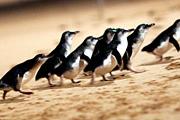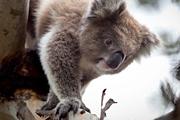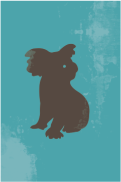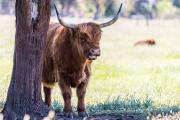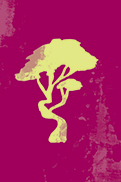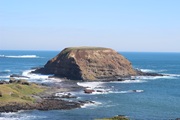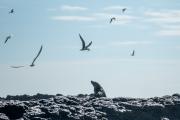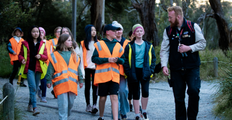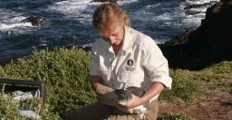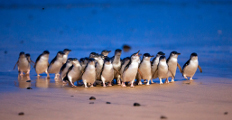Island Arks arrive at Phillip Island
Experts in island conservation from around Australia, New Zealand and the Pacific are set to meet at the Penguin Parade next month to discuss the biggest issues facing our unique habitat and environment, present new research and offer expertise on how to protect our islands into the future.
The Island Arks Symposium VII will bring together global experts, along with interested community members, with this year’s theme: Partnering for land, sea and coast.
After a two-year hiatus, the Symposium returns in its seventh year, with discussions around Lord Howe Island as a model of environmental excellence, pests and biosecurity, marine and coastal threats, the importance of seabirds, and Indigenous places.
Two workshops will focus on empowering Island communities and action planning for Island conservation.
“Australia's islands support up to 30% of all our threatened species, make up 40% of the iconic Australian coastline we love and make a huge contribution to our tourism economy,” said Nature Parks’ Conservation Manager Jessica McKelson.
“This is an opportunity for us to share our collective knowledge in island conservation so we can each continue to effectively manage the environmental and cultural values of our islands, seas and coastline.”
“We’re proud to be joined by Traditional Owners including the local Bunurong Land Council Aboriginal Corporation, Eastern Maar Aboriginal Corporation and Gunditj Mirring Traditional Owner Aboriginal Corporation.”
First Nations people from the Pitcairn Islands, New Zealand, Hawaii, Melanesia, Micronesia and Polynesia will also share their unique viewpoints and aspirations for the sustainable use and development of their islands.
Keynote speakers include experts in Biosecurity, community-led restoration initiatives and climate action.
Chief Scientist Conservation and Climate Action at Parks Victoria, Dr Mark Norman, is a keynote speaker at the event, “Victoria’s wonderful islands range from low sandy rises in coastal bays and inlets to sheer granite monoliths rising above the cold ocean swell of Bass Strait - coming all the way from Antarctica. They have strong cultural significance for Victoria’s First Nations peoples and are home to seabird and seal colonies, as well as many native terrestrial plants and animals,” Dr Norman said.
“As on land, there are many threats impacting our islands, from introduced pests and weeds to the increasing challenges brought by climate change. Parks Victoria is building advocacy, profile and partnerships to tackle these challenges and better understand and manage the many needs of island cultural and natural values. The symposium is a great way to bring together the thinkers and doers in island conservation to share our collective knowledge, learnings and expertise.”
“Phillip Island is truly a conservation success story,” Ms McKelson said.
“Most people are familiar with the growth of the Little Penguin population, but we’ve only just begun our work here. Phillip Island is home to some very special birds and animals, including the bush stone curlew, which are focused on breeding and re-introducing this critically endangered
species back to its native environment.”
The Island Arks Symposium will be held at the Penguin Parade from 5 – 9 September. It has previously been held at Rottnest Island, Tasmania, Fiji and the Great Barrier Reef World Heritage Area.
Daily tickets, online registration or full event passes are available at www.islandarks.com.au





